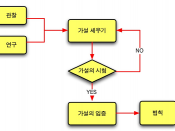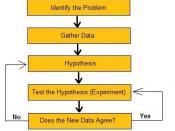Ever since the dawn of the mutation of mechanistic sciences of Newton and the revolutionary theories of Charles Darwin, the advances of science has been a steady intrusion upon the traditional territory of religious knowledge. The success of the Age of Enlightenment is attributed to replacing outmoded religious notions with new science, which is the gradual shift of the privileged status of the authoritarian in modern society from the Church leaders to the scientists. This encroachment has led to the general consensus belief that those two candidates of knowledge were fundamentally incompatible. However, Professor Robert Audi of the University Nebraska-Lincoln presented a claim that it was possible to reconcile theology with philosophical naturalism, despite their historical segregation. Doctor Schmidt in his introduction proposed the possibility of a dialogue between these two different forms of discourse, a peaceful coexistence enriched by one another. Philosophy is in the business of locating a possible and logical rapprochement between oil and water, and in this case, naturalism and theology.
Naturalism entails two claims - the belief that the subject of the non-human and human sciences is all there is, and that there is no need to postulate any explanation that goes beyond or outside the Universe. The first claim privileges the natural world as the limit of knowledge, since the basic truths are the truths of nature. This privilege is an epistemological assumption about the primacy of scientific evidence and the sanctity of the scientific method. The second claim is often called the Stratonician presumption , that the postulation of a God automatically adopts the burden of proof.
Professor Audi attempted to rescue theology from the ruthless badlands of naturalism by appealing to a theory of personal identity. Personhood, according to Audi is the typical identification of a person with his body...


